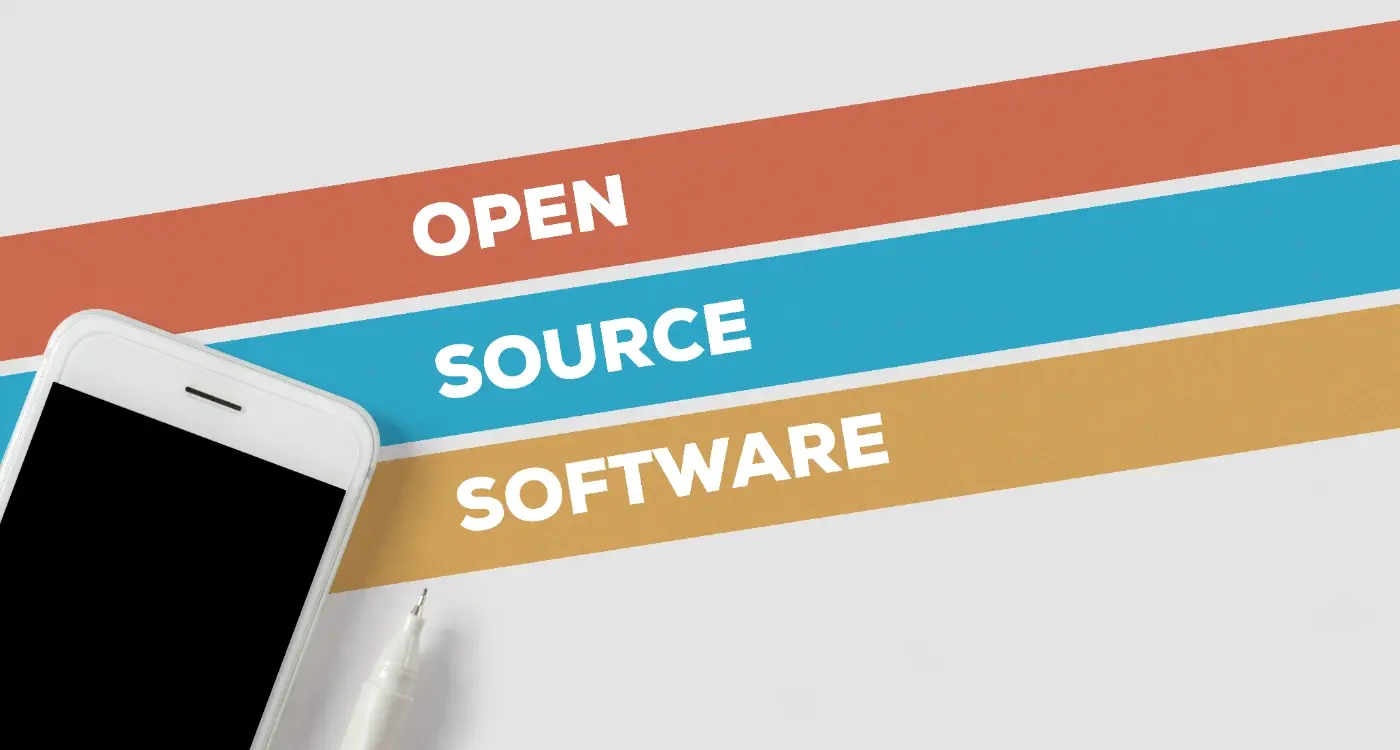When Should You Hire a Regulatory Expert for Your App?
Building an app isn't just about great design and clean code anymore—there's a whole other side to it that catches a lot of founders off guard. I'm talking about regulations, compliance rules, and legal requirements that can make or break your launch. And honestly? Its one of those areas where people realise they need help way too late in the process.
Here's the thing; if your app handles any kind of sensitive data (health information, financial transactions, childrens details), you're probably going to need regulatory help at some point. I've seen brilliant apps get pulled from stores because the team didn't understand what they were supposed to do about data protection. I've watched others spend months stuck in review processes because they missed key compliance requirements. It's a bit mad really, how much damage can be done by not knowing the rules.
The cost of fixing compliance issues after launch is typically 10 times higher than building them in from the start
But when exactly should you bring in a regulatory consultant for apps? That's what trips people up. Some founders hire compliance experts too early and burn through cash before they even validate their idea. Others wait until they've already built everything and then discover they need to rebuild half the app to meet legal requirements. Neither approach is ideal, and both can seriously hurt your chances of success. The truth is, theres a sweet spot for when you should involve regulatory expertise—and knowing that timing can save you months of headaches and thousands in development costs. Whether you need a full-time compliance expert or just some regulatory approval assistance depends entirely on what your app does and who its for.
Understanding App Regulations and Why They Matter
Right, lets talk about regulations—because honestly, this is where I see so many app projects go sideways. Its not the sexy part of app development, I'll admit that straight away. But here's the thing: ignoring regulations is like building a house without checking if you need planning permission; it might work out for a while, but when it catches up with you, the consequences can be bloody expensive.
When I first started building apps, regulations were much simpler. You basically just needed to follow the app store guidelines and maybe worry about some basic privacy stuff. These days? The regulatory landscape has become a lot more complex, and it varies massively depending on what your app actually does. A simple game faces completely different rules than a health tracking app or something that handles payments.
What Types of Regulations Actually Affect Apps
Different apps face different regulatory hurdles—its not a one-size-fits-all situation at all. Here are the main areas you need to think about:
- Data protection laws like GDPR that control how you collect and store user information
- Industry-specific regulations for healthcare, finance, or education apps
- Payment processing standards if you handle transactions
- Accessibility requirements that ensure everyone can use your app
- Content moderation rules for apps with user-generated content
- Age verification and child protection laws if kids might use your app
Why This Actually Matters to Your Business
You know what? I've seen apps get pulled from stores, companies face massive fines, and entire projects scrapped because someone didn't take compliance seriously from the start. And the frustrating part is that most of these problems could have been avoided with some planning early on. Getting regulations wrong doesn't just mean legal trouble—it damages your reputation, scares away users, and can completely derail your launch timeline. The apps that succeed are the ones that build compliance into their development process from day one, not the ones that try to retrofit it later when someone raises a red flag.
Signs Your App Needs Regulatory Expertise
Right, so how do you know when its time to bring in someone who actually knows their way around compliance? Because here's the thing—most founders I work with wait too long, and by then they've already built half the app in a way that won't pass regulatory checks. That's expensive to fix.
The most obvious sign is if you're handling anything medical. I mean anything at all—fitness trackers that monitor heart rate, apps that help people manage their medication, mental health tools, even nutrition guides can fall under health regulations depending on what they claim to do. If your app gives health advice or collects health data, you need compliance help before you write a single line of code. Not after. Before.
Money is the other big one. If your app processes payments, stores financial information, or does anything remotely related to banking or investment advice? Yeah, you need a regulatory consultant for apps. The financial sector doesn't mess about with compliance—one mistake and you're looking at fines that could sink your entire business.
But here are some signs people often miss: if you're collecting data from children (anyone under 13), you're dealing with COPPA regulations in the US and similar laws elsewhere. If you're operating across multiple countries, each one has its own rules. If your app uses AI to make decisions that affect people's lives—like loan approvals or job applications—that's becoming a regulated area fast.
If you find yourself Googling "is my app regulated" more than once, that's your answer. Call a compliance expert. Seriously, that uncertainty means you need professional guidance, not a few hours of internet research.
Another warning sign? If you're in education and handling student data, or if you're creating tools for vulnerable populations like elderly users or people with disabilities. These areas have specific protections built into law, and getting it wrong isn't just about fines—its about causing real harm to people who trusted your app.
Common Industries That Require Compliance Help
After working on apps across pretty much every sector you can think of, I can tell you straight away that some industries are just more complicated than others when it comes to regulations. Its not that these sectors have harder rules—they're just dealing with more sensitive stuff, and the authorities watch them much more closely.
Healthcare apps are probably the most obvious ones. If you're handling any kind of patient data, prescribing medications, or offering medical advice, you need to understand GDPR, the Data Protection Act, and often regulations from bodies like the MHRA. I mean, even something as simple as a symptom checker needs careful consideration because you're essentially providing health guidance.
Financial apps are another big one—anything involving payments, banking, investments or insurance falls under FCA oversight. And let me tell you, the FCA don't mess about. If your app lets people send money, store payment details, or make investment decisions, you're operating in heavily regulated territory; most startups I work with in fintech are genuinely surprised by how much compliance work is involved before they can even launch.
Heres a quick breakdown of the sectors where regulatory help isn't optional, it's necessary:
- Healthcare and telemedicine apps handling patient information or providing medical services
- Financial services including banking, payments, cryptocurrency, and investment platforms
- Children's apps that collect data from users under 13—COPPA and age-appropriate design codes apply
- Gaming and gambling apps which need specific licences from the Gambling Commission
- Education apps that store student data or operate in institutional settings
- Food and supplement apps making health claims or facilitating sales
- Dating apps collecting personal data and dealing with user safety concerns
But here's the thing—even if you're not in these sectors, you might still need help. If your app collects any personal data (and most do), stores payment information, or targets users in multiple countries, compliance gets complicated fast. The lines aren't always clear, which is exactly why talking to someone who knows the rules inside out can save you months of headaches.
The Real Cost of Getting Compliance Wrong
Let me be blunt—getting compliance wrong can end your app before it even launches. I've seen it happen. Companies that thought they could sort out regulations "later" only to find out later never comes because they've built their entire app architecture the wrong way. And rebuilding from scratch? That's not cheap.
The financial penalties are scary enough on their own. GDPR violations can cost you up to 4% of your annual global turnover or €20 million, whichever is higher. Health apps that mishandle patient data face even steeper fines under regulations like HIPAA—we're talking £1.5 million per violation in some cases. But here's what really keeps me up—its not just the fines themselves, it's everything else that comes with them.
Your app gets pulled from the stores. Users lose trust. Your reputation takes a hit that can last years. I mean, people remember data breaches and compliance failures way longer than they remember your fancy features. One fintech client nearly lost their entire funding round because investors discovered compliance issues during due diligence; they had to delay launch by six months to fix problems that would have cost a fraction to prevent.
The cheapest time to fix compliance issues is before you write a single line of code—the most expensive time is after you've launched to 100,000 users
Then there's the hidden costs nobody talks about. Legal fees to defend yourself. Engineering time to retrofit compliance features. Lost revenue while your apps unavailable. The opportunity cost of not being able to expand to new markets because you cant meet their regulations. Actually, some companies spend more fixing compliance problems after launch than they spent building the entire app in the first place. Bit mad really, but that's the reality of trying to patch in compliance as an afterthought.
What a Regulatory Consultant Actually Does
Right, so you've decided you need some help with regulations—but what exactly does a regulatory consultant do all day? I mean, its not like they sit around reading law books for fun (though some might, honestly). Their job is to make sure your app doesn't accidentally break rules that could shut you down or land you with massive fines.
Here's the thing—a good regulatory consultant starts by auditing your app. They'll go through your features, your data collection practices, your user flows, everything really. They're looking for red flags that could cause problems with bodies like the ICO, FCA, or MHRA depending on your industry. They know what these regulators care about because they've worked with them before; they understand how these organisations think and what triggers their attention.
What They'll Actually Help You With
A regulatory expert handles the practical stuff that keeps you compliant. They don't just point out problems—they help you fix them in ways that make sense for your app and your users. Here's what that looks like in practice:
- Writing privacy policies and terms of service that actually meet legal requirements (not just copying templates from the internet)
- Designing consent flows that comply with GDPR and similar regulations
- Preparing documentation for regulatory submissions if your app needs approval before launch
- Setting up data handling processes that protect user information properly
- Creating audit trails so you can prove compliance if questions come up later
- Training your team on what they can and cant do with user data
The Ongoing Relationship
But here's what surprises most people—hiring a regulatory consultant isn't usually a one-time thing. Regulations change constantly, and your app evolves too. Every new feature you add might have compliance implications. A good consultant becomes part of your team, reviewing updates before they go live and keeping you informed when new rules affect your app. They're basically your insurance policy against expensive mistakes.
Finding the Right Expert for Your Specific App
Not all regulatory consultants are created equal—and honestly, finding the right one can feel a bit overwhelming when you're not sure what to look for. The thing is, compliance experts usually specialise in particular industries or types of regulation; someone who's brilliant at FDA medical device approvals might not have a clue about financial services regulations, and that matters more than you'd think.
Start by identifying your specific regulatory needs. Are you dealing with health data? Financial transactions? Children's privacy? Each area has its own set of rules and its own community of experts who really know their stuff. I've seen clients waste months working with the wrong consultant simply because they didn't match the expertise to their actual requirements from the start.
What to Look for in a Regulatory Consultant
Experience in your specific industry is non-negotiable, but you also want someone who understands mobile technology—not just the regulations. Some compliance experts come from traditional industries and struggle to apply old rules to new tech, which creates all kinds of problems down the line. Ask potential consultants about apps they've worked on before; get specifics about what regulations they helped navigate and what the outcomes were.
Request references from other app developers they've worked with. A good regulatory consultant should have a track record you can verify, and previous clients who'll vouch for their work. If they cant provide references? That's a red flag.
Questions You Should Actually Ask
When you're vetting consultants, ask them how they stay current with regulatory changes—because regulations evolve constantly and what was compliant last year might not be compliant now. Ask about their communication style too; you need someone who can explain complex legal requirements in plain English, not someone who hides behind jargon. And definitely discuss timelines upfront—regulatory work almost always takes longer than you expect, but an experienced consultant should be able to give you realistic timeframes based on your specific situation.
Working With Regulators During App Development
Right, so you've brought a regulatory expert on board—brilliant. But here's the thing, their job isn't to just check a box at the end of development and say "yep, all good." That's honestly one of the biggest mistakes I see teams make, and its expensive to fix later.
Your regulatory consultant needs to be involved from the very start. I mean it. When you're sketching out user flows and deciding what data you'll collect? They should be in that room. When you're choosing your cloud infrastructure and deciding where user data gets stored? They need a say in that too. The decisions you make in the first few weeks of a project can have massive compliance implications down the line, and unpicking those later is... well, it's not fun.
Regular Check-ins Keep Everyone Aligned
Set up weekly or fortnightly meetings with your regulatory person during active development. Quick ones work fine—30 minutes is usually enough. Walk them through what features you've built, show them the actual screens, let them poke around in the staging environment. They'll spot potential issues way faster than you will because they know what regulators care about.
Documentation Happens as You Go
One thing that will save your sanity? Document everything as you build it, not after. Your regulatory expert will likely ask for things like data flow diagrams, security protocols, and privacy impact assessments. If you're doing this work anyway (and you should be), share it with them in real-time. They can course-correct early instead of asking you to rebuild entire systems later. Trust me on this one—I've seen teams lose months because they didn't loop in compliance until testing phase. Its not pretty, and the developers aren't happy about redoing work they thought was finished. Understanding how to navigate common app store rejection problems early can also prevent costly delays once your compliant app is ready for submission.
Conclusion
Look, here's the thing—deciding when to bring in a regulatory consultant for apps isnt always obvious. Some developers wait too long and end up rebuilding entire features. Others bring experts in too early and spend money they dont really need to yet. Finding that sweet spot? Thats what this whole guide has been about.
If your app handles health data, processes payments, or serves children, you probably already know you need help. But even if you're in a less regulated space, there are warning signs worth paying attention to. Are you storing personal information? Planning to expand into new markets? Facing questions from your legal team that Google cant answer? These are all signals that it might be time to have a conversation with someone who knows compliance inside and out.
The cost of getting compliance wrong—whether its fines, app store rejection, or having to rebuild core functionality—almost always outweighs the cost of hiring a regulatory expert. I mean, I've seen apps delayed by months because they tried to figure out GDPR requirements on their own when a compliance expert could have sorted it in weeks. Its a bit mad really, but it happens more often than you'd think.
What matters most is being honest with yourself about what you dont know. You're brilliant at building apps (or you wouldnt be reading this), but regulatory frameworks? They change constantly, vary by region, and have nuances that can trip up even experienced developers. Getting help isnt admitting defeat; it's being smart about protecting your app, your users, and your business. Start the conversation early, ask the right questions, and you'll save yourself headaches down the line.
Share this
Subscribe To Our Learning Centre
You May Also Like
These Related Guides

What Happens to Your IP When Developers Leave Your Project?

What Happens When Someone Copies Your App Design?



